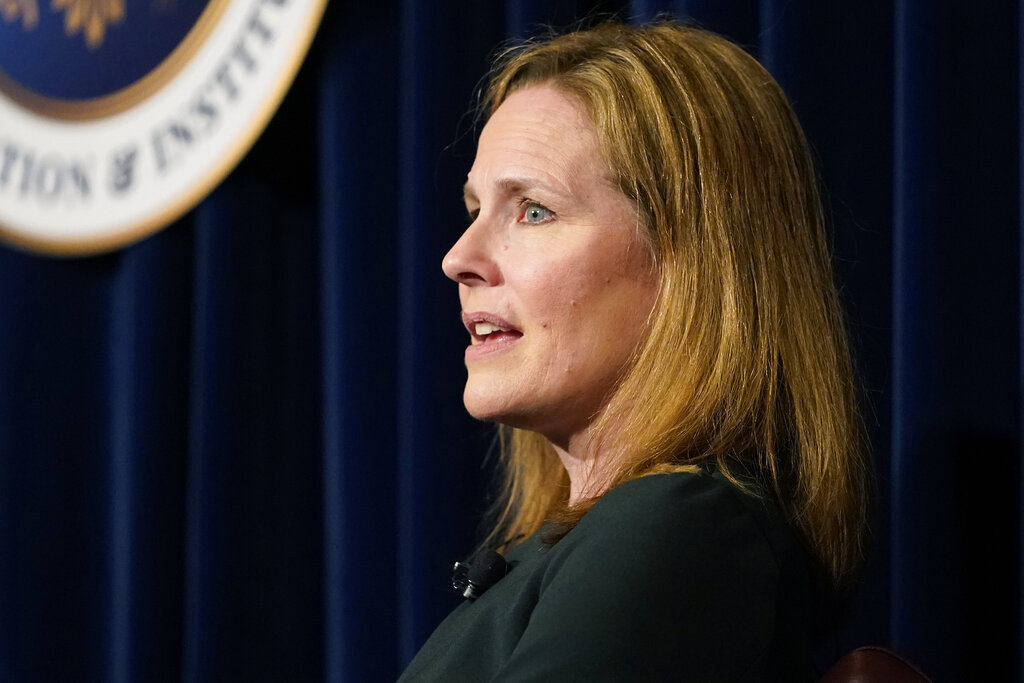After a Bitter Term, Our Justices Are Cooing With Constitutional Comity
Or are they camouflaging increasingly bitter constitutional clashes and trouble in the coming term?

Could the anger and fury that erupted within the Supreme Court in the wake of the overturning of the precedent of Roe v. Wade give way to a new era of good feeling? It’s early yet, but something certainly seems to be in the air.
At a moment when doomsayers are prophesying an era of partisan calamity, it increasingly appears that the justices themselves are trying to show the spirit of comity. Reading high court signals is always difficult, but the justices are certainly putting up a friendly front.
In a conversation hosted by the Ronald Reagan Institute’s Center for Civics, Education, and Opportunity and moderated by Yale Law Professor Akhil Reed Amar, Justices Amy Coney Barrett and Sonia Sotomayor summoned a message of unity.
“We like each other,” the two justices insisted, “We do.” They said so even as they have found themselves on opposing sides of nearly every major decision this term. Justice Sotomayor took a strikingly diplomatic approach.
“One of the wonders of being on the Supreme Court,” she said, “is my knowing that every single one of my colleagues is equally passionate about the Constitution.”
Justice Barrett responded in kind, noting that “We do try to work together behind the scenes, and we don’t go in and have our minds made up and locked in. We work together a lot, and we talk, and, you know, we do change our minds.”

The Associated Press reports that the justices “celebrate birthdays with a toast and round of ‘Happy Birthday,’ shake every other justice’s hand when they get together and eat lunch together, where a rule is that they can’t talk about work.”
This is not the first time in recent months that Justice Sotomayor has offered public encomiums to friendship with a justice with whom she rarely agrees. Last month, described Justice Thomas as “a man who cares deeply about the court as an institution.”
They both, she averred, share “a common understanding about people and kindness towards them.” The paean echoes the friendship between Justices Ruth Bader Ginsburg and her ideological opposite, Antonin Scalia, who famously bonded over opera and New Year’s dinners.
In her memoir, Justice Ginsburg wrote in respect of The Great Scalia “how blessed” she was “to have a working colleague and dear friend of such captivating brilliance, high spirits and quick wit.”
Today’s public displays of friendship occur against a fraught backdrop. At Big Sky, Justice Elena Kagan warned that “if over time the court loses all connection with the public and with public sentiment, that’s a dangerous thing for a democracy.”
While the former dean of Harvard Law School who is sometimes spoken of as a potential Chief Justice insisted that she was referring to no decisions in particular, it is difficult to imagine that she did not have the court’s last term in mind.
In May, Justice Thomas painted a picture of a court riven by distrust and suspicion in the wake of the leak of Justice Alito’s draft opinion. He characterized that breach as “kind of an infidelity.”
“When you lose that trust, especially in the institution that I’m in, it changes the institution fundamentally,” Justice Thomas, veteran of what might still be the bitterest confirmation battle of all time. “You begin to look over your shoulder.”
Recalling the court of a bygone era, Justice Thomas recollected ruefully that “We actually trusted each other. We may have been a dysfunctional family, but we were a family.”
As recently as December, Justice Sotomayor, triggered by the arguments in the Mississippi abortion, asked, “Will this institution survive the stench that this creates in the public perception that the constitution and its reading are just political acts?”
Some have conjectured that these public expressions of exasperation indicated a deeper vein of distrust and acrimony. Last month, Supreme Court scribe Nina Totenberg quoted a source telling her that the court “sounds like it’s imploding.”
Yet here we are, with Justice Sotomayor making nice with, in Justice Thomas, the most conservative sage on the bench and then cooing over the constitutional controversies with Justice Barrett.

